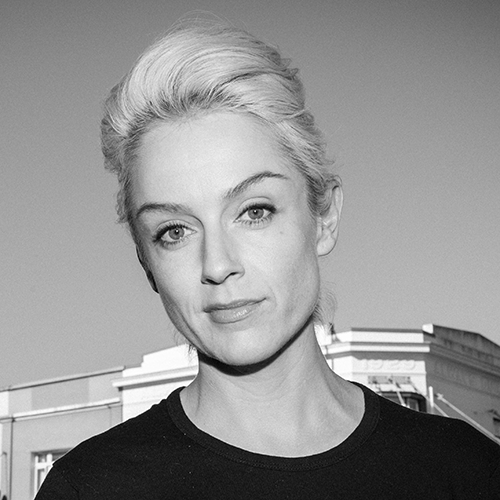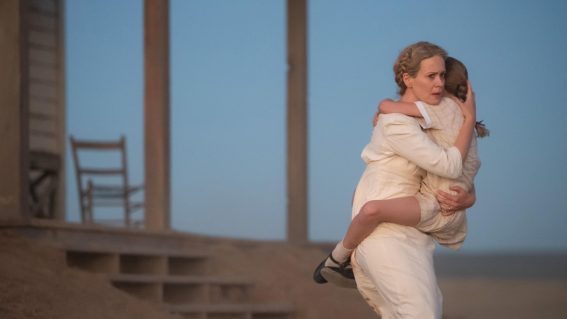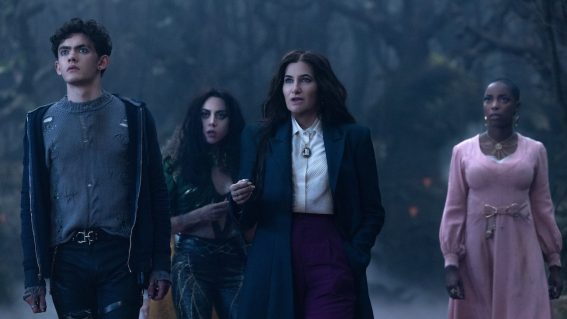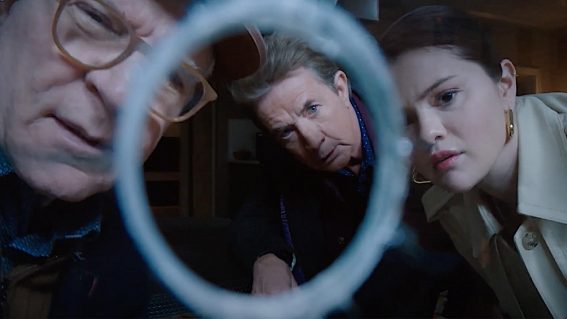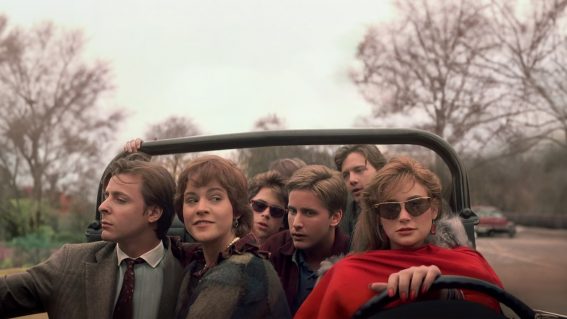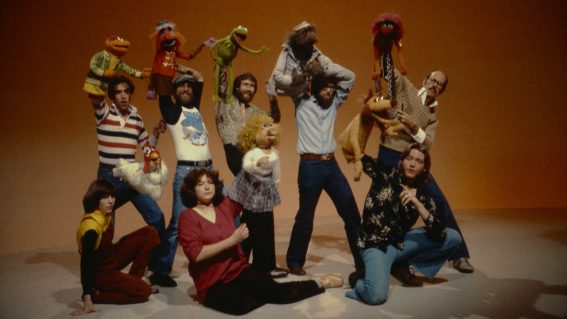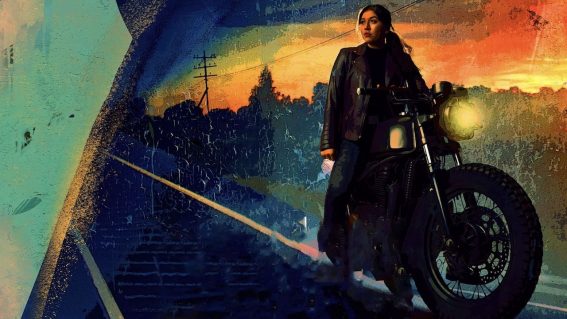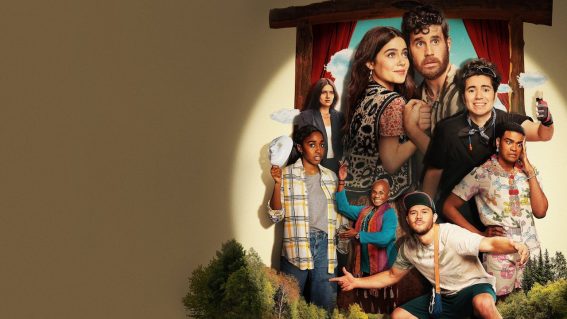Inspirational and Muppetational: our guide to the best and worst of The Muppet Show
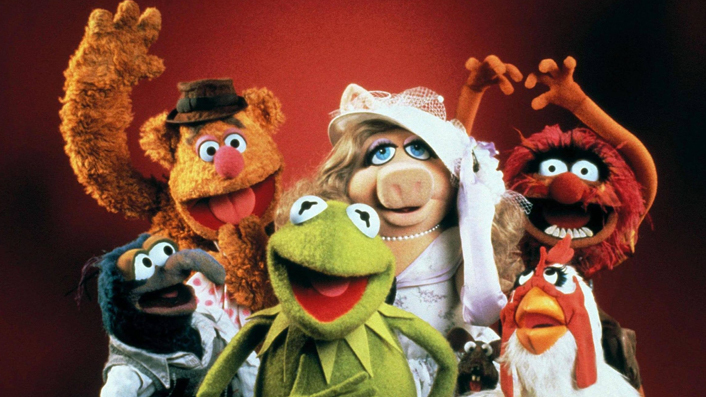
With all five seasons of The Muppet Show now streaming on Disney+, Flicks’ foremost Muppet expert Sarah Thomson shares her key moments from the felted phenomenon.
Muppet fans often disagree upon their collective noun.
‘Muppies’ are fish; a ‘Hensonite’ sounds like luggage; and, well, ‘Muppetite’ veers into sounding vaguely Anabaptist. Some prefer the term ‘Tough Pig‘—a nod to the combo of years, filth, and poor decisions accrued since we were first in the Muppet canon’s thrall, usually as young children.
See also:
* All new streaming movies & series
* Best new movies & shows on Disney+
All fans, however, agree upon the core of said canon: five televised seasons of beautiful, bananas nonsense performed and written with joy, incredible artistry, and a healthy dose of anti-authoritarian glee.
‘Otherness’ came baked in to The Muppet Show. Nevermind the cast of pigs, amphibians, anxious comedian bears, and… er… whatever Gonzo is—the very country Jim Henson had worked in for decades didn’t want a bar of his guest-spangled variety show. ABC said no. CBS said no. Networks scoffed at the idea a ‘puppet show’ could possibly connect to both children and adults.
Unwanted stateside, The Muppet Show ended up in London’s equivalent to Burbank, Elstree Studios, welcomed by the dancer-cum-lord-and-media-mogul who also commissioned Thunderbirds and The Prisoner. Naturally.
And connect with children and adults it did—running in free-to-air syndicated UK/US primetime, making trans-Atlantic headlines, and playing a very real role in ITV’s ‘70s worker strikes. People wanted their Coro and their Kermit, dammit. A felted phenomenon was born.
However, like most ‘family variety’ offerings of the late seventies, The Muppet Show’s 120 episode run does not escape being plagued by problematic content—with their 21st century franchise owner Disney placing this content warning ahead of The Muppet Show’s streaming on Disney+, the first time all five seasons have been available to the public in one offering:
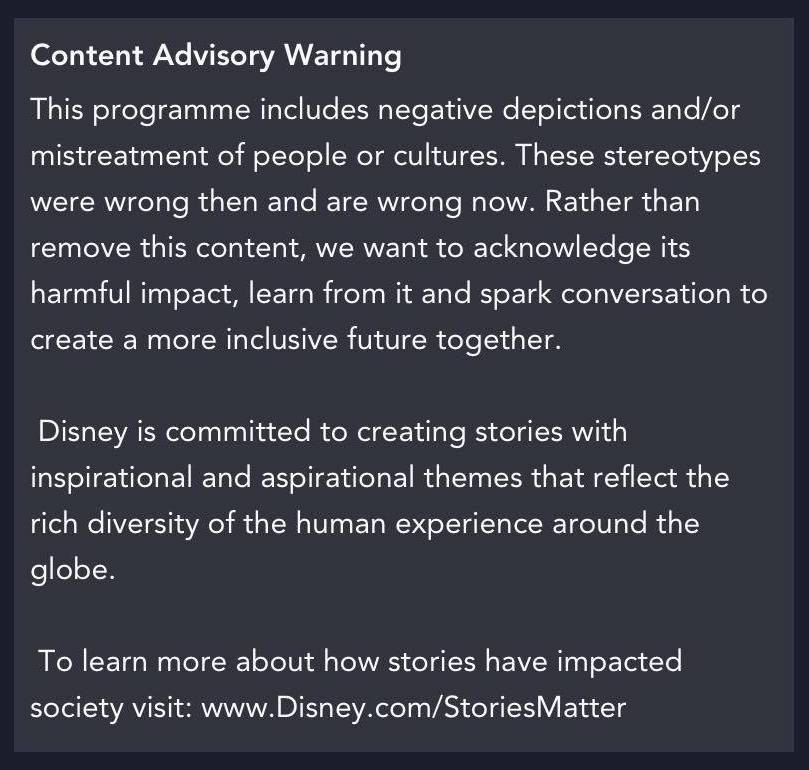
So, in honour of continuing the conversations mentioned above, and celebrating the artistry of a group (lead by the once-in-a-lifetime figure of Jim Henson) who forged a raggedy path to bring you television’s oddest, most affecting, ‘family’ entertainment—here is our guide to The Muppet Show: The Good, The Bad, and The Musical.
The Good
8. Paul Simon (season 5, episode 11)
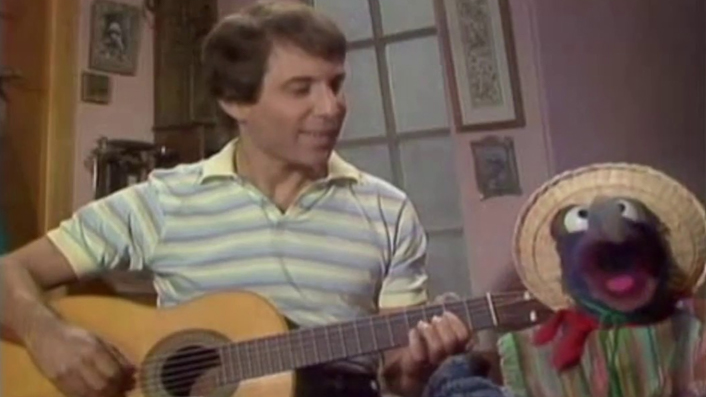
Celebrity rumour hasn’t been kind to ol’ Rhymin’ Simon. Accusations of treating his musical collaborators poorly paints a picture of the man being… well, a bit of a dick.
Which is precisely why his po-faced turn ‘acting’ as Gonzo-the-Great’s antagonist in this episode is so brilliant. He’s juvenile, up-himself, and conniving—the perfect foil to a Muppet Theatre full of insecure puppet id.
Add in some truly hideous scripted puns and it’s shin-aching fun for all and sundry. Stealing Gonzo’s chickens though? Step off, Simon. (Dick.)
7. Lou Rawls (season 2, episode 15)
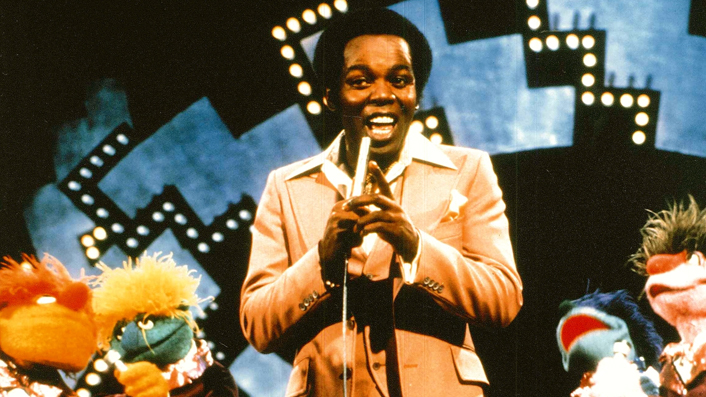
A great example of Muppet Show moving parts: oft-repeated sketch segments ‘At the Dance’, ‘Veterinarians’ Hospital’ and ‘Muppet Labs’; the very definition of a ‘rolling’ gag from Fozzie; a guest star who can ad-lib with felt when needed—and also perform scalding-hot musical numbers as if they’re not balancing on elevated stage stacks.
6. Gladys Knight (season 5, episode 16)
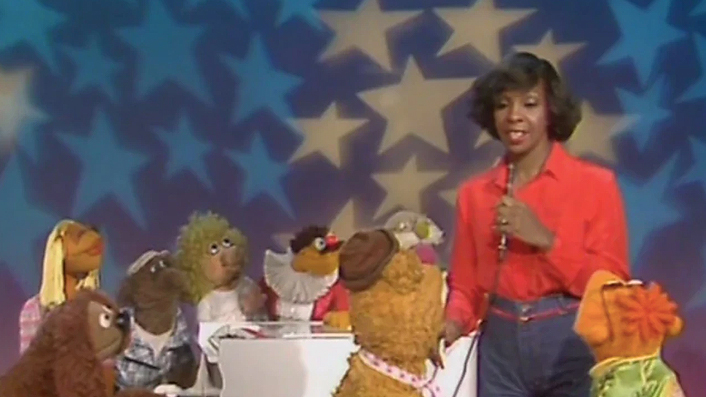
Pure star power from Gladys Knight, overcoming some pretty eggy Muppet-only musical numbers.
This episode could be listed here purely on the strength of Knight singing ‘Heard It Through the Grapevine’ with a literal puppet grapevine (‘Pips’, geddit?), but it’s also worth mentioning as a great example of Muppets achieving a serious, respectful tone with Knight’s rendition of ‘God Bless the Child’. Muppet Theatre stops, and so do you.
5. Rudolf Nureyev (season 2, episode 13)
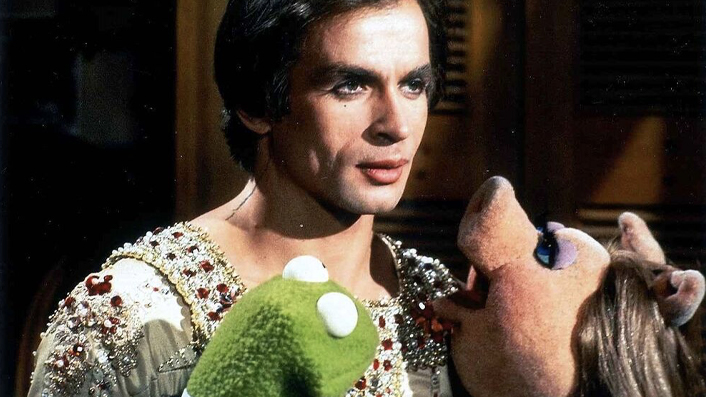
A masterclass in the comic truism that nothing is funnier than someone who is truly unaware of how they’re perceived—courtesy of the brilliant Frank Oz: the performer of Sam the American Eagle; Miss Piggy; Fozzie, etc.
This episode, and Nureyev’s casting in it, was also a turning point in how The Muppet Show itself was perceived: a Russian ballet dancer, skewering his high-culture background on a Western puppet variety show at the height of the Cold War? Heady stuff.
CW: This episode, while being brilliant in many ways, also features one of the best/worst examples of poor taste. Miss Piggy sings ‘Baby It’s Cold Outside’ to Nureyev while being incredibly inappropriate towards him in a sauna.
Is the scene a deliberate pun? Probably. Could it possibly, given the iconoclastic Nureyev’s pre-existing relationships with Muppet Show crew, have a knowing LGBTQI+ reading? Maybe. Is it also incredibly hard to watch such predatory behaviour? You bet.
4. Harry Belafonte (season 2, episode 14)
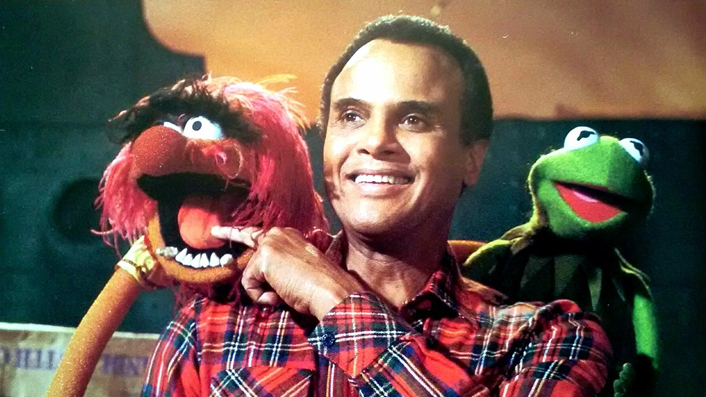
Some guest stars gladly defer to the writing team and will have a grand ol’ time doing whatever they’re asked (see: Glenda Jackson – S05E07). Then there’s Harry Belafonte.
After talking at length with Henson, as he saw the show as ‘an opportunity to do something worthwhile’, he sent The Muppet Show tapes of music he wished to platform, all from outside the dominant Western paradigm. He then worked closely with Henson to ensure the puppets made with African designs were appropriate, and not offensive to religious or cultural traditions.
A true believer in the Muppets’ power to platform important ideas in an accessible way, Belafonte later sang the closing song of this episode at Henson’s memorial in 1990.
3. Debbie Harry (season 5, episode 9)
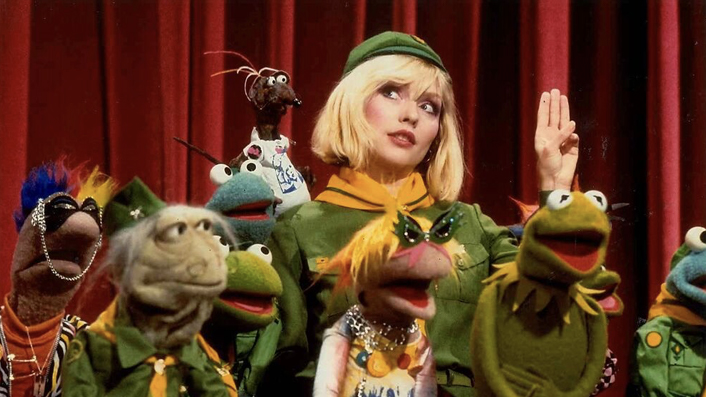
Do you know how to get your ‘Punk Rock’ Merit Badge in Frog Scouts? Well, I’m none too sure Debbie Harry knows either, but… it’s more about the journey.
Add in: a punning Hunchback of Notre Dame; a ‘Pigs In Space’ segment; great musical numbers; a groaningly bad ‘Muppet News Flash’ gag—and you’ve got a pretty great all-rounder of an episode.
2. Liza Minnelli (season 4, episode 14)
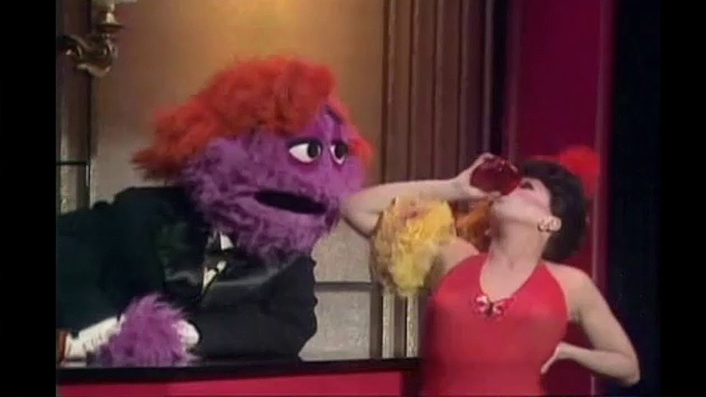
What do you do with a star who can do everything? You do everything, of course.
When The Muppet Show’s writers really hit their stride, arguably in the mid seasons, nothing was too meta in concept or execution.
This episode is, essentially, a noir/murder mystery. Minnelli plays ‘Liza O’Shaugnessy’, a concerned starlet, in need of hiring Kermit’s private detective. The less said about this episode the better, other than it’s confusingly violent-not-violent and proves there’s a theatre kid in all of us, goddammit.
1. Star Wars (season 4, episode 17)
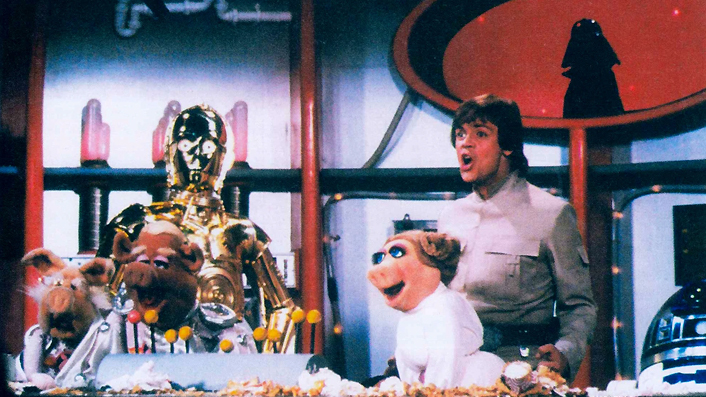
In terms of ‘meta’ episodes, this one has it all: false twins, the ‘fourth wall’ is in tatters, mistaken identity, ‘accidental’ guest stars, and a truly eerie moment where both Muppets and Star Wars stars sing ‘When You Wish Upon a Star’ in front of a Magic Kingdom skyline—a good 24+ years before both franchises would come to be owned by The Mouse™.
P.S. Okay, this is a film website. So, here’s something to whip out when that person at that party tries to tell you Rey and Finn aren’t ‘proper Star Wars canon’.
YOU: “So, if as ‘Star Wars Insider’ magazine said in 2001, ‘any Star Wars project authorized by Lucasfilm, and featuring Star Wars characters, can surely be placed into the formal, official canon of the Star Wars universe’—did you know that the Galactic Republic has Muppets?”
THEM: “Ah, it’s called Yoda. And it’s not a Muppet. Dry lol.”
YOU: “No, I’m talking about Dearth Nadir, Pig-cess Leia, and Angus McGonagle, the Argyle Gargoyle Who Gargles Gershwin.”**
THEM: [leaves]
You’re welcome.
**These are not made up. Watch the episode.
The Bad:
CW: discussion of illicit materials; racial stereotyping; intolerance of subjugated groups; misogyny; predatory behaviour
4. Poor Choice Guests
Some who advocated for awkward sketches; some who were arguably in poor mental health and should have been cared for, not platformed; some who were later trialled for charges relating to paedophilia.
With caution: James Coburn (season 5, episode 5); Spike Milligan (season 3, episode 17); Peter Sellers (season 2, episode 19); Chris Langham (season 5, episode 19)
3. Poor Choice Whatnots
A ‘whatnot’ is the name given to a sort-of Muppet ‘extra’. They often have interchangeable characteristics (eyes, ears, hair, etc.) and often perform as one-liner characters, backup singers or dancers.
They are usually humanoid and are also, due to their brief screen time, often the biggest site of lazy visual tropes and racial stereotyping.
With caution: James Coburn (season 5, episode 5); Spike Milligan (season 3, episode 17); Dizzy Gillespie (season 4, episode 13)… and, sadly, many more…
2. Poor Choice Muppets
Conversations swirl around the ‘Swedish’ Chef. Would Henson’s original chaos-Muppet be so amusing if he were mock-speaking a native-tongue situated closer to our own culture and traditions?
Then there are day players like Marvin Suggs, a kind of circus master, who keeps an arsenal of shell-shocked, frightened creatures called the ‘Muppaphones’ that he whacks with a mallet, their howls of pain making his ‘music’. And Bobby Benson, a perma-smoking fifties mobster, who conducts a band comprised of solely of babies. Are they both commentary on the unhealthy nature of mogul culture? If we’re being generous, maybe.
You be the judge: Victor Borge (season 4, episode 5); Lesley Ann Warren (season 3, episode 15); Lou Rawls (season 2, episode 15)
1. Poor Choice Attitudes
As with Piggy and Nureyev above, the Muppets are no stranger to making light of, often highly problematic, base desires.
Frank Oz once offered that Animal’s entire character could be summed up in five words: sex; sleep; food; drums; and pain. He’s a walking id machine. But should we really be laughing at a character that drools, literally needs to be chained up by his bandmate, Floyd Pepper, and chases guest-stars while yelling ‘wo-man!’?
It’s a hard question to answer: does our connection to some Muppets benefit from employing reductive and possibly dangerous tropes? Are they, perhaps, crude morality tales, no different from their oft-base puppet antecedents Mr. Punch and Pulcinella?
“In my opinion the street [puppet] is one of those extravagant reliefs from the realities of life which would lose its hold upon the people were it made moral and instructive. I regard it as quite harmless in its influence, and as an outrageous joke which no one in existence would think of regarding as an incentive to any kind of action or as a model for any kind of conduct. It is possible, I think, that one secret source of pleasure […] is the satisfaction the spectator feels in the circumstance that likenesses of men and women can be so knocked about, without any pain or suffering.” – Charles Dickens, 1849
Dunno, Charlie. In an age where we’re finally paying closer attention to who’s laughing and at whose expense those laughs are made—it’s certainly not that simple.
You be the judge: Rudolph Nureyev (season 2, episode 13); Rita Moreno (season 1, episode 5); Raquel Welch (season 3, episode 11)
The Musical:
Not feeling au fait with the Great American Songbook? Don’t know your Brecht & Weill from your Suite bergamasque? Never fear, The Muppet Show is here.
8. Lullaby of Birdland – Don Knotts (season 2, episode 1)
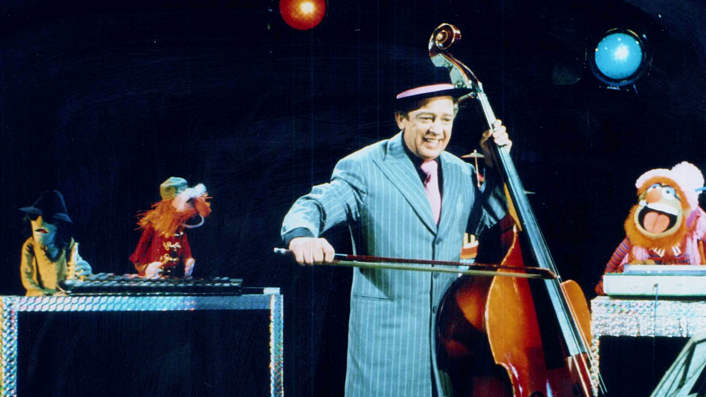
“Sounds like the bird died.”
UPDATE: Possibly due to rights clearance issues, this entire number (and all references to it) appear to be missing from the episode. A shame, as it’s a key plot point. Here’s a slightly pants online copy instead.
7. Rama Lama Ding Dong (season 4, episode 17)
Look at these sheep puppets. Just look at them. Now look at them again.
Argh.
6. Mama Don’t Allow – Dudley Moore (season 4, episode 7)
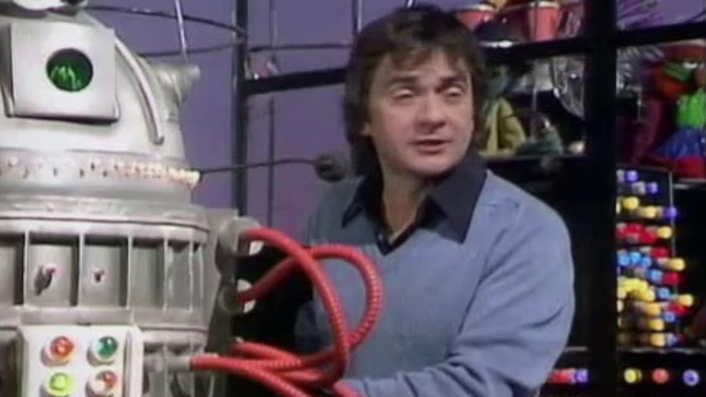
This episode was the very first scripted programme to play on ITV after the television workers’ strike of 1979 lifted – and it features a musical robot ‘stealing the jobs’ of the Muppet house band, Dr. Teeth and the Electric Mayhem. Things do not go well.
Solidarity forever!
5. I’m a Woman – Raquel Welch (season 3, episode 11)
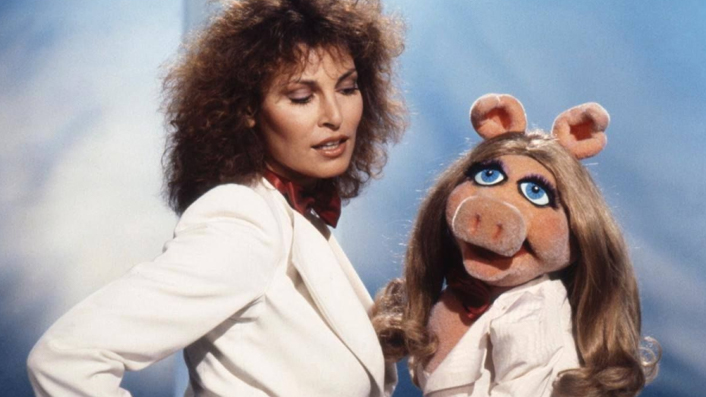
Nothing quite says ‘feminism’ more than two stunning women in tuxedos sing/fighting about how much domestic labour they can do unnoticed.
Hold on, wait… wrong notes.
4. The Windmills of Your Mind (season 2, episode 1)
This is what anxiety looks like.
3. Clair de Lune (season 2, episode 13)
Another example of Oz’s sublime comic timing. Some of the purest enjoyment in The Muppet Show is found in moments where Oz & Henson bounce off one another, here courtesy of Rowlf (Henson) and Fozzie Bear (Oz).
2. Fever – Rita Moreno (season 1, episode 5)
“Cool it.”
1. Mack the Knife (season 3, episode 15)
Henson (Dr. Teeth) and Oz (Sam the American Eagle) once again, in a perfect gem of censorship-prodding, square-needling genius.
There you have it: our long, yet still far from exhaustive, guide to the Good, the Bad and the Musical in The Muppet Show.
We’ve sworn, we’ve cringed, we’ve managed to somehow quote Charles Dickens, and along the way—we’ve picked out some of the wonderful moments available to you in all their (apparently uncensored) glory, streaming now on Disney+.
20/02 – UPDATE: Thanks to online Muppet fans (in particular Redditor ItachiIshtar) we now know there are some elements missing from Disney+’s offering:
Season 1:
Kaye Ballard (episode 23) episode missing in some territories, however available in Australia.
Season 2:
Musical numbers missing from Bernadette Peters (episode 12); Don Knotts (episode 1).
Season 3:
Spike Milligan (episode 15) episode missing in some territories, however available in Australia.
Musical numbers missing from Cheryl Ladd (episode 24); Danny Kaye (episode 16); Roger Miller (episode 21).
Season 4:
John Denver (episode 1) episode missing in some territories, however available in Australia.
Musical number missing from Anne Murray (episode 15).
Season 5:
Brooke Shields (episode 6) and Chris Langham (episode 19) episodes missing in all territories.
Musical numbers missing from James Coburn (episode 5); Tony Randall (episode 13); Hal Linden (episode 17); Wally Boag (episode 20); Buddy Rich (episode 22); Marty Feldman (episode 18).
